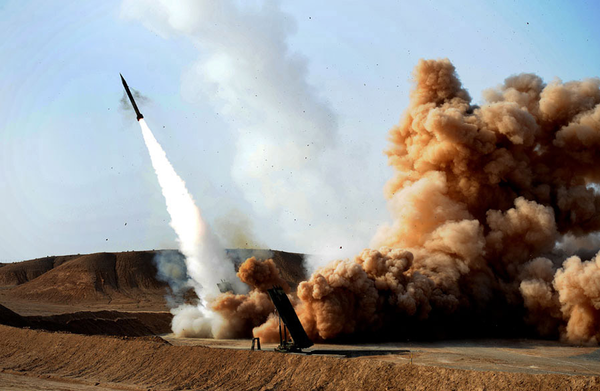“Iran is prepared to reach a ‘good agreement’ quickly, with the goal of protecting the Iranian people’s rights and interests,” the Iranian foreign minister announced as Ali Bagheri Kani, the country’s chief negotiator, was arriving in Vienna for another round of nuclear negotiations. Israel’s Ha’aretz newspaper posits that the Islamic Republic is coming to Vienna to reap economic and political benefits for its people.
Go with it for a moment. Accept that Tehran only wants to take care of its people and seeks a better deal than the one that imposed sanctions, limitations, and inspections.
But be careful.
Western media and politicians like to date Iranian cheating from the Trump administration pullout of the 2015 Joint Comprehensive Plan of Action (JCPOA). But Iran cheated on the terms of negotiations with both the IAEA and the P5+1 before, during and after the deal. No less an authority than President Barack Obama said after cheating on agreements with the IAEA over the Fordow site was exposed in 2009, “As the international community knows, this is not the first time that Iran has concealed information about its nuclear program.”
The JCPOA was intended to halt all enrichment at Fordow and make it an R&D facility. Now, Iran has acknowledged not only continuing enrichment, but at higher levels with advanced centrifuges barred by the JCPOA.
![]()
Still, if you want to know what a “better deal” looks like from Tehran’s point of view, Iran has been clear:
- Iran will not engage about its missile or regional activities
- The U.S. must accept responsibility for the past mistakes and build confidence by paying damages and reparations
- The U.S. must refrain from categorizing the sanctions. All sanctions imposed during the Obama and Trump administrations must be lifted
- The lifting of sanctions will need verification which will take time. Iran must be allowed time for the verification of the sale of oil and the return of revenue
- The U.S. must give assurance that it will not abandon the JCPOA again — this is particularly important because as a party to the JCPOA it will have the power to misuse the trigger mechanism deviously.
The first demand is key. Tehran’s “regional activities” include hegemony in the Persian Gulf and Red Sea (threatening oil exports as well as threatening the Bab el Mandeb Straits and the American base in Djibouti); proxy forces controlling Iraq, Syria, and Lebanon. These are designed ultimately to lead to Shiite supremacism across the Muslim world; diminution of U.S. power and prestige in the region; and ultimately, the destruction of Israel, which stands in the way of the other goals.
The answer, then, from the United States is “no.” As is the answer to the second and third conditions.
For the fourth, a counterproposal could be useful. President Obama chose not to submit the JCPOA to the Senate as a treaty for ratification — for obvious reasons. And the Trump administration followed the precedent. A reasonable promise to Iran would be to submit any agreed-upon text to the Senate as the Constitution requires. A ratified treaty is more reliable than other commitments.
Apart from its conditions for talks, Iran’s Fars News Agency has suggested that a Western military option is a bluff because President Joe Biden doesn’t want to embark on a new regional war. No, he doesn’t — nor should he. But Iran is putting forward its own military options for nuclear war.
![]()
Brig. Gen. Abolfazl Shekarchi, spokesman for Iran’s armed forces, announced to a state media outlet, “We will not back off from the annihilation of Israel, even one millimeter. We want to destroy Zionism in the world.” At the same time, the former head of Iran’s Atomic Energy Agency Abbasi Radni said Iran has a plan for an offensive atomic bomb, devised by scientist Mohsein Fakhrizadeh, who died under odd circumstances in 2020. (Israel, of course, was blamed, but the evidence suggests otherwise.) Said Radni, “We can and do know how to make the bomb.”
While threatening palaver is often a sign of fear or internal weakness, in the case of Iran, a country with a notably violent foreign policy and a propensity to cheat on agreements, it cannot be dismissed.
The United States, then, should also “seek a better deal.” One that would see Iran not as a party aggrieved by the West, but as an aggressive state at the conventional and (presumed) nuclear levels that needs to be constrained both in its conventional and (presumed) nuclear aspirations.


